Jens Heidrich
Building AI Innovation Labs together with Companies
Mar 16, 2022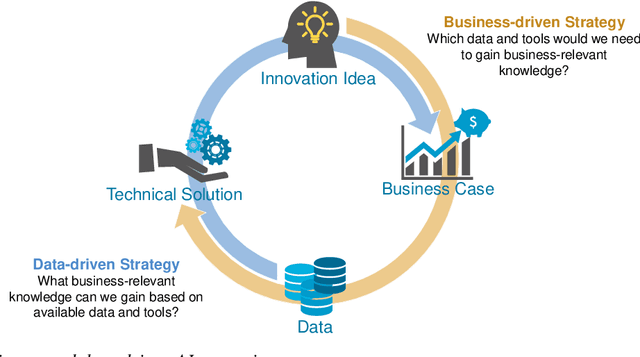
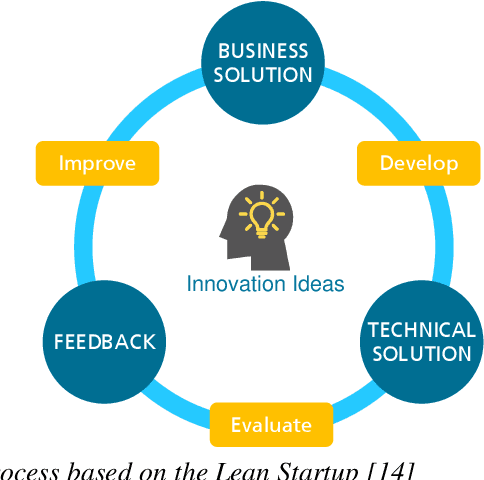
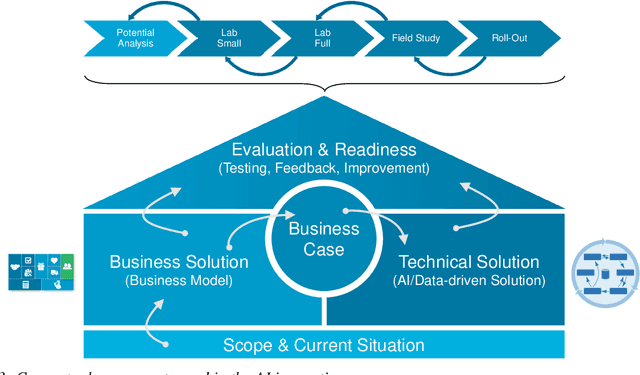
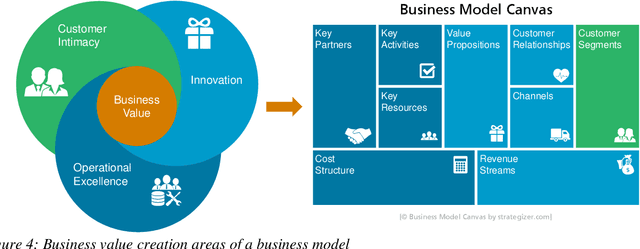
Abstract:In the future, most companies will be confronted with the topic of Artificial Intelligence (AI) and will have to decide on their strategy in this regards. Currently, a lot of companies are thinking about whether and how AI and the usage of data will impact their business model and what potential use cases could look like. One of the biggest challenges lies in coming up with innovative solution ideas with a clear business value. This requires business competencies on the one hand and technical competencies in AI and data analytics on the other hand. In this article, we present the concept of AI innovation labs and demonstrate a comprehensive framework, from coming up with the right ideas to incrementally implementing and evaluating them regarding their business value and their feasibility based on a company's capabilities. The concept is the result of nine years of working on data-driven innovations with companies from various domains. Furthermore, we share some lessons learned from its practical applications. Even though a lot of technical publications can be found in the literature regarding the development of AI models and many consultancy companies provide corresponding services for building AI innovations, we found very few publications sharing details about what an end-to-end framework could look like.
Towards Guidelines for Assessing Qualities of Machine Learning Systems
Aug 25, 2020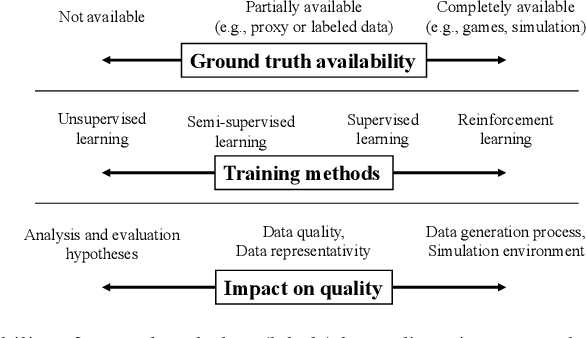
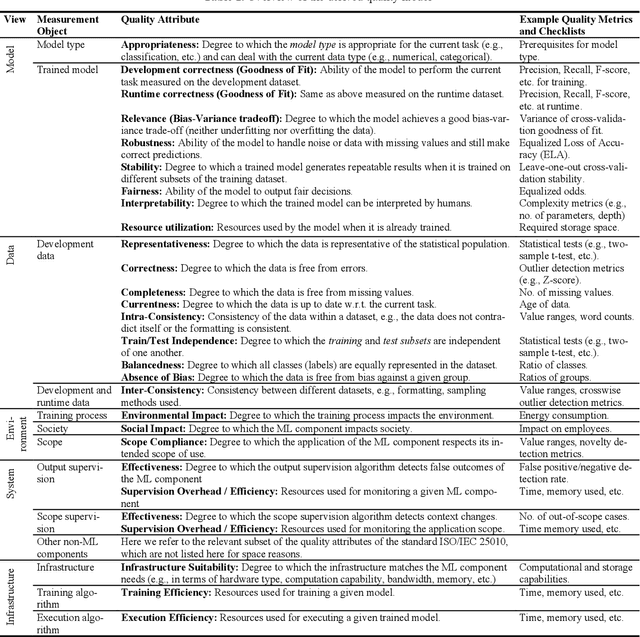
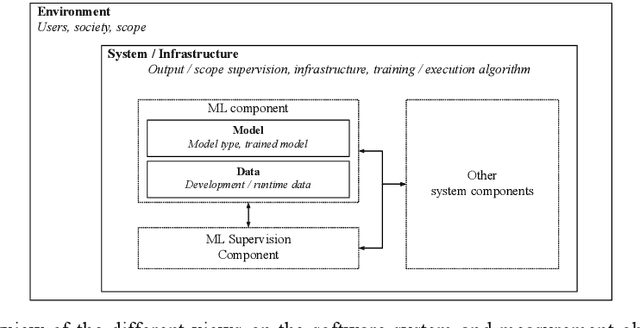
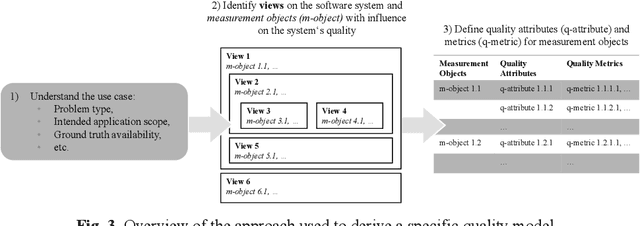
Abstract:Nowadays, systems containing components based on machine learning (ML) methods are becoming more widespread. In order to ensure the intended behavior of a software system, there are standards that define necessary quality aspects of the system and its components (such as ISO/IEC 25010). Due to the different nature of ML, we have to adjust quality aspects or add additional ones (such as trustworthiness) and be very precise about which aspect is really relevant for which object of interest (such as completeness of training data), and how to objectively assess adherence to quality requirements. In this article, we present the construction of a quality model (i.e., evaluation objects, quality aspects, and metrics) for an ML system based on an industrial use case. This quality model enables practitioners to specify and assess quality requirements for such kinds of ML systems objectively. In the future, we want to learn how the term quality differs between different types of ML systems and come up with general guidelines for specifying and assessing qualities of ML systems.
* Has been accepted at the 13th International Conference on the Quality of Information and Communications Technology QUATIC2020 (https://2020.quatic.org/). QUATIC 2020 proceedings will be included in a volume of Springer CCIS Series (Communications in Computer and Information Science)
 Add to Chrome
Add to Chrome Add to Firefox
Add to Firefox Add to Edge
Add to Edge